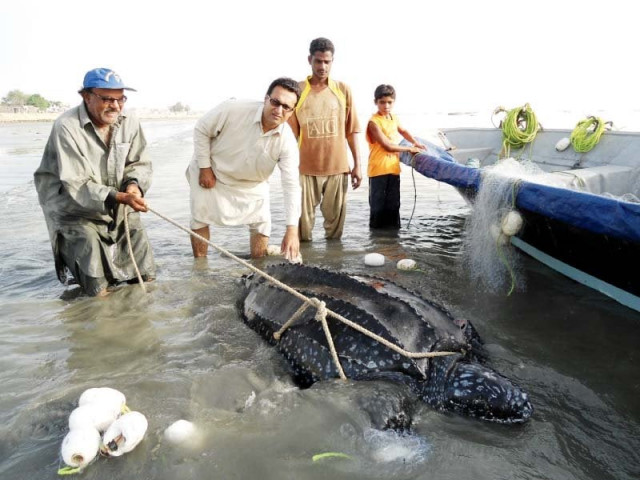‘Fishing communities should be first priority’
WWF-P seminar notes freshwater supply in Indus Delta is decreasing due to dams, canals

The prosperity and well-being of fishing communities along Sindh's coast should be the first priority of the government. Efforts should be taken to revive the lost glory of the Indus landscape and cultural identities associated with natural resources, especially fisheries along the coastal belt.
These views were expressed by speakers at a seminar on World Fisheries Day, organised by the World Wide Fund for Nature-Pakistan (WWF-Pakistan) on Saturday.
Life in the Indus Delta is dependent on freshwater supply, which has decreased due to the construction of dams and canals on the Indus River, they noted. The speakers also stressed the need to promote aquaculture to support local communities and reduce pressure on fish stocks in the delta.
Sindh Coastal Development Authority (SCDA) director-general Riaz Ahmed Abbasi said that historically, the coastal belt of Sindh was known for its abundant natural resources, mainly its fisheries and agriculture.
However, the lack of freshwater supply, climate change, pollution and other factors have led to the degradation of the delta, he observed. Currently, local communities are facing a serious shortage of freshwater, which needs to addressed, said the DG.
According to him, the SCDA is working on a plan to improve the living standard of coastal communities and provide basic amenities to them.
Around 45 per cent of fisheries in Pakistan have declined, noted WWF-P's Dr Tahir Rasheed, listing the primary reasons as overfishing, unsustainable fishing practices, water pollution, habitat degradation and climate change.
World Fisheries Day calls for action to address these challenges and improve productivity of marine and freshwater bodies, said Rasheed, adding that currently the human footprint on fisheries is larger than ever before in history. To provide livelihood support and reduce pressure on fisheries, WWF-P has established crab ponds and fish farming units along the Sindh coast, which have been very successful, according to him.
Published in The Express Tribune, November 23rd, 2020.



















COMMENTS
Comments are moderated and generally will be posted if they are on-topic and not abusive.
For more information, please see our Comments FAQ